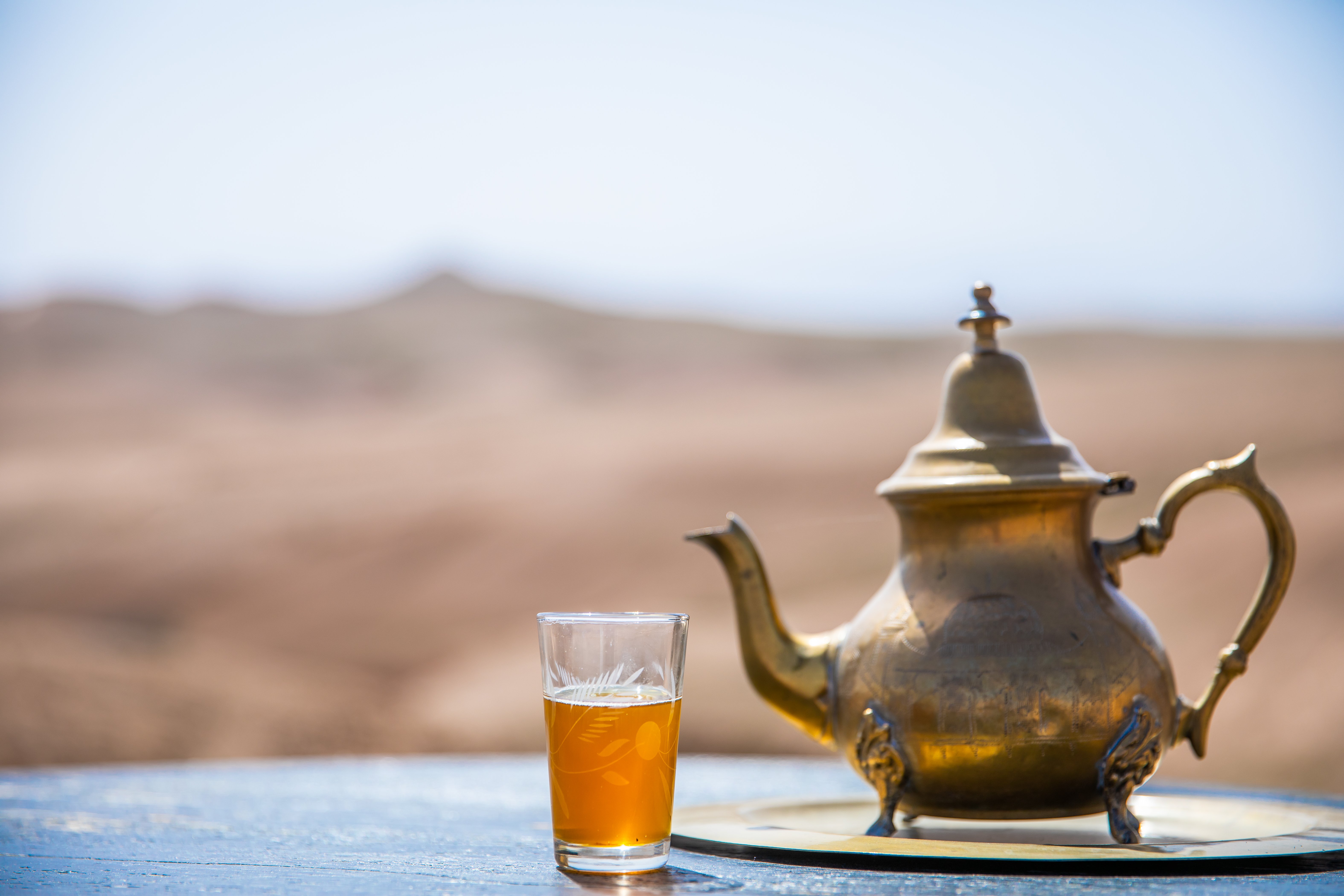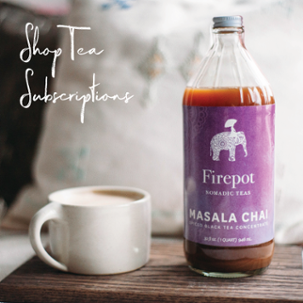There has been a lot of conversation recently about how people are handling prolonged exposure to stressful times. Coronavirus has knocked most of us off of our normal routines and hidden us away from friends, family and support systems. Men, women and even children are feeling the effects of adapting to a life that will likely never go back to the prior "normal" we all remember. Anxiety and depression are increasing and tensions are creating divisions.
What we have come to realize is that we are being shown, forced even, to experience an element of surrender, of finding peace in the present moment. Right now is the only place we can ever truly find peace. There is an immense amount of freedom and joy in this fact, if we can just create the time to unwind and allow ourselves to drift down the beautiful river of life. The key to finding this time, in our opinion, is the daily practice of tea!
.jpg?width=6300&name=Firepot%20-%20Morocco-237%20(1).jpg)
Mindfulness has been embedded in the tea lifestyle for centuries. Early tea rituals were a time to slow the normal rhythm of life and become aware of all your senses. It’s a time to willfully come into a meditative and contemplative mindset rather than simply running through as if life were a contest to be won by whoever gets through it the fastest. There is such joy in the details, the simple moments of reflection and awareness. Too often we dash through life missing out on what our senses are trying to tell us: looking without really seeing, eating without tasting, hearing without ever stopping to listen, and touching but never allowing ourselves to feel.
We deserve better. Our friends and family deserve better. This is the lesson of 2020 and there is no better vehicle for arriving in the present moment than through tea.
.jpg?width=6300&name=Firepot%20-%20Morocco-166%20(1).jpg)
We invite you, especially if you’ve never done so before, to take some time with your tea to savor every step in the process. By walking intentionally through each step, you will arrive at your own mindfulness ritual. Set aside 10-15 minutes of quiet and you will see what we mean:
- Select your tea and stop to look at the leaf before you steep it. Inhale it’s aroma. What do you notice? Are you able to pick out different ingredients, herbs, botanicals or spices?
- As you pour the water into the teapot to heat, listen to the sounds it makes. Watch the steam rise and note the steady increase in bubbles as the temperature increases.
- Notice what happens as you pour the hot water over your tea leaves. Does the water slowly change color or do tendrils of color fan out into the water slowly?
- Notice how much time it takes for the color of the water to change. Can you smell the aroma lifting off the water? Can you pick out the same flavors as the tea steeps that you noticed before putting it in the water? How are they different? How are they the same?
- As you pick up your mug, feel the warmth in your hands. Bring it to your lips slowly and close your eyes. Take a sip, letting the tea wander through your mouth, noticing how different sections of your tongue emphasize different tastes in the tea.
- Swallow it slowly. Can you feel the warmth as it journeys through your body? Notice the calm you feel throughout your entire being.
- Open your eyes. How do you feel? Did you find a moment of forgetting about the chaos in the world and remembering the simple joy of living? Were you able to stay grounded and focused?
In practicing mindfulness, you sharpen your senses and shift the mundane tasks of life to meditations, exercises bringing you into presence, joy and peace. You’ll start to realize how special each breath is, and become acutely aware of all you’ve been missing. You’re not looking for perfect, you’re simply looking to appreciate the beauty in what you have...just as it is.

Taking time for tea helps us realize that life is exquisite, even in it’s blemishes and fallibility. The Japanese have a term called Wabi-Sabi - the philosophy of accepting your imperfections and making the most out of life. Wabi-Sabi encourages each of us to make note of our imperfections and honor them for their beauty and the unique story they create out of our individual life experiences.
Nowhere is this expressed more beautifully than in a Japanese art form called Kintsugi. Kintsugi, or golden repair, is the art of taking cracked pottery and repairing it, not by hiding the break...but by emphasizing it. Kintsugi takes each broken place and fills it in with gold lacquer. Once filled with gold, the broken places make the pottery worth more, adding to its value rather than detracting from it.
It’s an important lesson we would all do well to remember in this tumultuous season of life. Let go of your expectation of perfection and start savoring the season you’re in.
Begin today by practicing tea as a way of reflection.







Leave a comment
Comments will be approved before showing up.